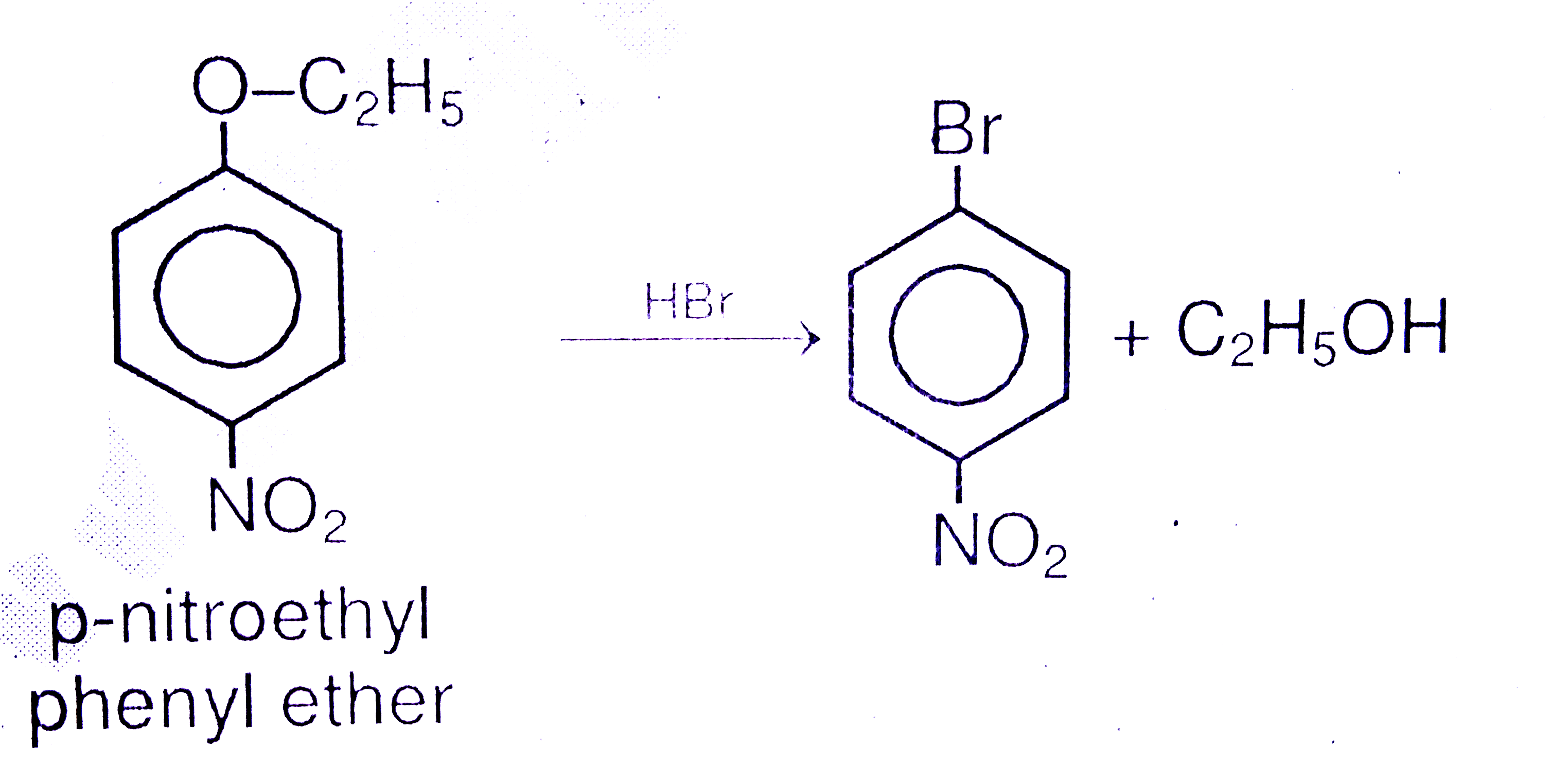Assertion: tert-butylbromide undergoes SN1 nucleophilic substitution readily than n-butyl bromide.
Reason: It proceeds by the formation of stable carbocation.
Assertion and reason both are correct statements and reason is correct explanation for assertion.
Assertion and reason both are correct statements but reason is not correct explanation for assertion
Assertion is correct statement but reason is wrong statement.
Assertion is wrong statement but reason is correct statement.
The correct Answer is:A
To solve the question regarding the assertion and reason about tert-butyl bromide and n-butyl bromide undergoing nucleophilic substitution reactions, we can break it down into a step-by-step explanation.
Step 1: Understanding the Compounds
- Tert-butyl bromide (C4H9Br) has the structure (CH3)3C-Br. It is a tertiary alkyl halide.
- n-butyl bromide (C4H9Br) has the structure CH3-CH2-CH2-CH2-Br. It is a primary alkyl halide.
Step 2: Mechanism of SN1 Reaction
- The SN1 mechanism involves two steps:
1. Formation of a carbocation by the departure of the leaving group (Br in this case).
2. Nucleophilic attack on the carbocation.
Step 3: Carbocation Stability
- Tertiary carbocations (like that formed from tert-butyl bromide) are more stable than primary carbocations (like that formed from n-butyl bromide).
- The stability of carbocations increases with the number of alkyl groups attached to the positively charged carbon. Tertiary carbocations are stabilized by hyperconjugation and inductive effects from surrounding alkyl groups.
Step 4: Rate of Reaction
- Since the rate of an SN1 reaction depends on the stability of the carbocation formed, tert-butyl bromide, which forms a stable tertiary carbocation, will react faster than n-butyl bromide, which forms a less stable primary carbocation.
Step 5: Conclusion
- Therefore, the assertion that tert-butyl bromide undergoes SN1 nucleophilic substitution more readily than n-butyl bromide is true.
- The reason that it proceeds by the formation of a stable carbocation is also true.
Final Answer
Both the assertion and the reason are correct, and the reason correctly explains the assertion.
---
- Tert-butyl bromide (C4H9Br) has the structure (CH3)3C-Br. It is a tertiary alkyl halide.
- n-butyl bromide (C4H9Br) has the structure CH3-CH2-CH2-CH2-Br. It is a primary alkyl halide.
- The SN1 mechanism involves two steps:
1. Formation of a carbocation by the departure of the leaving group (Br in this case).
2. Nucleophilic attack on the carbocation.
- Tertiary carbocations (like that formed from tert-butyl bromide) are more stable than primary carbocations (like that formed from n-butyl bromide).
- The stability of carbocations increases with the number of alkyl groups attached to the positively charged carbon. Tertiary carbocations are stabilized by hyperconjugation and inductive effects from surrounding alkyl groups.
- Since the rate of an SN1 reaction depends on the stability of the carbocation formed, tert-butyl bromide, which forms a stable tertiary carbocation, will react faster than n-butyl bromide, which forms a less stable primary carbocation.
- Therefore, the assertion that tert-butyl bromide undergoes SN1 nucleophilic substitution more readily than n-butyl bromide is true.
- The reason that it proceeds by the formation of a stable carbocation is also true.
Both the assertion and the reason are correct, and the reason correctly explains the assertion.
Topper's Solved these Questions
- BOOK - MODERN PUBLICATIONCHAPTER - HALOALKANES AND HALOARENESEXERCISE - REVISION EXERCISE (Very short Answer Questions)31videos
HALOALKANES AND HALOARENES
- BOOK - MODERN PUBLICATIONCHAPTER - HALOALKANES AND HALOARENESEXERCISE - REVISION EXERCISE (Very short Answer Questions) (CBSE Qs....)10videos
HALOALKANES AND HALOARENES
- BOOK - MODERN PUBLICATIONCHAPTER - HALOALKANES AND HALOARENESEXERCISE - REVISION EXERCISE (Objective Questions) (Passage based questions)10videos
HALOALKANES AND HALOARENES
- BOOK - MODERN PUBLICATIONCHAPTER - GENERAL PRINCIPLES AND PROCESSES OF ISOLATION OF ELEMENTSEXERCISE - COMPETION FILE (Integer Type Numerical Value Type Questions)5videos
GENERAL PRINCIPLES AND PROCESSES OF ISOLATION OF ELEMENTS
- BOOK - MODERN PUBLICATIONCHAPTER - ORGANIC COMPOUNDS CONTAINING NITROGEN EXERCISE - UNIT PRACTICE TEST5videos
ORGANIC COMPOUNDS CONTAINING NITROGEN
Similar Questions
Knowledge Check
- Question 1 - Select One
Assertion:

Reason: due to formation of highly stable carbocation.AIf both assertion and reason are true and reason is the correct explanation of assertion.BIf both assertion and reason are true but reason is not the correct explanation of assertion.CIf assertion is true but reason is false.DIf both asertion and reason are false. - Question 2 - Select One
Which of the following undergoes nucleophilic substitution exclusively SN1 mechanism?
ABenzyl chlorideBEthyl chlorideCChlorobenzeneDIsopropyl chloride - Question 3 - Select One
SN2 mechanism proceeds through formation of :
ACarbonium ionBTransition stateCFree radicalDCarbanion
Which of the following undergoes nucleophilic substitution exclusively SN1 mechanism?
View SolutionSN2 mechanism proceeds through the formation of
View SolutionWhich of the following undergoes nucleophilic substitution exclusively by SN1 mechanism?
View SolutionWhich of the following undergoes nucleophilic substitution exclusively bySN1 mechanism ?
View SolutionWhich of the following undergoes nucleophilic substitution exclusively by SN1 mechanism?
View Solution
